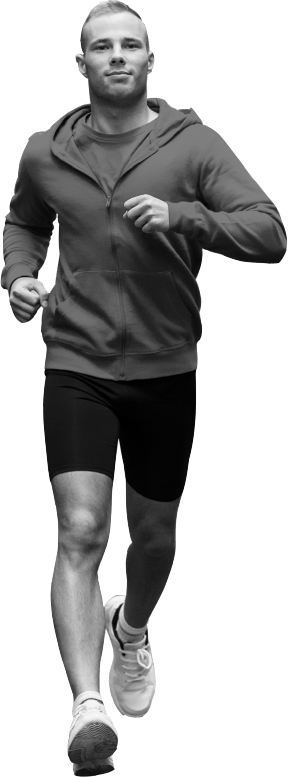What is T4 Syndrome (Upper Thoracic Syndrome)?
T4 syndrome is also known as the “upper thoracic syndrome”, however, T4 syndrome is the more commonly used/recognised term. In the mid-back there are 12 thoracic vertebrae that provide movement and support as well as attachments for the ribs. T4 syndrome is the name given to irritation that occurs most commonly at the level of the T4 vertebra, however the name given to this syndrome can be misleading since T4 syndrome can be described as a dysfunction of the thoracic spine at levels T2-T7, which are mainly felt in the upper back, upper limbs, and hands.
The exact cause of T4 syndrome is difficult to pinpoint, however it is suggested that some risk factors include poor movements and poor posture that occur around the level of the T4 and affect the surrounding structures. The common causes for T4 syndrome include; underlying thoracic dysfunction, change in routines which involve novel movements, sudden movement which may or may not overload/overextend the spine, heavy lifting or strenuous movement/activity, poor posture and hypermobility.
T4 syndrome typically presents as upper back stiffness with associated symptoms of upper extremity pain, numbness and/or paraesthesia (pins and needles), headaches and migraines.
Does this sound like a condition you’re suffering from? We offer services that can help aid in your recovery!
Call (02) 9639 7337 or visit our website to book an appointment now!
Karas, S. and Pannone, A., 2017. T4 syndrome: a scoping review of the literature. Journal of Manipulative and Physiological Therapeutics, 40(2), pp.118-125. https://www.shoulderdoc.co.uk/article/1630
Book Now With Precision Health today and take the first step towards better health!
Book NowConditions Treated
Take care of your health with precision!
Precision Health Spine & Sports clinic treats a diverse range of neuromuscular and skeletal biomechanical disorders. Whether you are having trouble with your knees, you have a pain in the neck, or if you are just feeling stiff and sore, we can help you with our suite of treatment options that can be tailored especially for you. Take a look at the wide range of disorders we can help you with. Whether you need chiropractic treatment, remedial massage, physiotherapy, podiatry or a combination of disciplines, we have the expertise to decrease your pain and discomfort and increase your mobility and quality of life.
Headaches & Migraines
Shoulder Pain
Elbow Pain
- Ulnar Collateral Ligament Sprain/Strain
- Radial Head Subluxation (Nursemaid’s Elbow)
- Radial Collateral Ligament Sprain/Strain
- Posterior Impingement Syndrome
- Osteochondrosis (Panner’s Disease)
- Olecranon Bursitis (Miner's Elbow)
- Medial Epicondylitis (Golfer's Elbow)
- Little League Elbow Syndrome
- Lateral Epicondylitis (Tennis Elbow)
- Joint Hypermobility Syndrome
- Elbow Joint Dysfunction
Finger and Thumb Pain
Wrist Pain
- Wrist Tendinopathy
- Wrist Ganglions
- Ulnar Tunnel Syndrome (Guyon’s Canal Syndrome)
- Triquetrolunate Dissociation
- Triquetrohamate Instability
- Triangular Fibrocartilage Complex Injury
- Superficial Radial Nerve Compression: Causes and Symptoms
- Scapholunate Dissociation
- Scaphoid Fracture
- Radial Tunnel Syndrome
- Pronator Teres Syndrome
- Posterior Interosseous Nerve Syndrome (PINS)
- Kienbock’s Disease
- Intersection Syndrome
- Hook of Hamate Fracture
- Dorsal Impaction Syndrome
- De Quervain’s Tenosynovitis
- Cubital Tunnel Syndrome
- Carpal Tunnel Syndrome
- Anterior Interosseous Syndrome
Knee Pain
- Tibial Plateau Fractures
- Tennis Leg
- Proximal Tibial-Fibular Subluxation/Dysfunction
- Posterior Cruciate Ligament (PCL) Injury
- Popliteus Tendinitis
- Pes Anserine Bursitis/Tendinitis
- Patellofemoral Pain Syndrome (Runner’s Knee)
- Patellofemoral Arthralgia (Chondromalacia Patellae)
- Patellar Tendinitis (Jumper’s Knee)
- Patellar Dislocation and Subluxation
- Osteochondritis Dissecans (OCD) of the Knee Joint
- Osteoarthritis of the Knee Joint
- Osgood-Schlatter Disease
- Meniscus Injuries to the Knee
- Medial Collateral Ligament (MCL) Injury
- Lateral Collateral Ligament (LCL) Injury
- Knee Joint Dysfunction
- Iliotibial Band Syndrome
- Anterior Cruciate Ligament (ACL) Injury
Head And Neck Pain
- Whiplash Injury (Hyperflexion/Hyperextension Injury)
- Torticollis (Wry Neck)
- Thoracic Outlet Syndrome
- Temporomandibular Joint Dysfunction (TMJ Disorder)
- Herniated Cervical Disc
- Cervical Spondylosis
- Cervical Spine Sprain/Strain
- Cervical Segmental Joint Dysfunction
- Cervical Radiculopathy
- Cervical Facet Syndrome
Back Pain
- Transient-Structural Scoliosis (Sciatic Scoliosis)
- Thoracic Segmental Joint Dysfunction
- T4 Syndrome (Upper Thoracic Syndrome)
- Structural Scoliosis (Idiopathic Scoliosis)
- Shingles (Herpes Zoster Virus)
- Scheuermann’s Disease
- Non-Structural Scoliosis (Postural Scoliosis)
- Kyphosis
- Juvenile Scoliosis
- Infantile Scoliosis
- Compression Fracture
- Adult Scoliosis
Lower Back Pain
- Spondylolisthesis
- Sacroiliac Joint Dysfunction
- Sacroiliac Injury
- Reactive Arthritis (Reiter’s Syndrome)
- Mechanical Low Back Pain
- Lumbosacral Injury
- Lumbar Spondylolysis
- Lumbar Spinal Stenosis (Lumbar Canal Stenosis)
- Lumbar Segmental Joint Dysfunction
- Lumbar Facet Syndrome
- Lumbar Disc Herniation
- Ankylosing Spondylitis
- Abdominal Aortic Aneurysm
Hip, Groin and Thigh Pain
- Trochanteric Pain Syndrome
- Trochanteric Bursitis
- Traumatic Hip Dislocations
- Transient Synovitis
- Stress Fractures (Neck of Femur Fracture)
- Snapping Hip Syndrome
- Slipped Capital Epiphysis (Adolescent Coxa Vara)
- Rheumatoid Arthritis of the Hip Joint
- Quadriceps Muscle Strain/Quadriceps Muscle Tear
- Paget’s Disease
- Osteoarthritis of the Hip Joint
- Osteitis Pubis
- Muscle Contusions/Myositis Ossificans
- Meralgia Paresthetica
- Leg-Calve-Perthe’s Disease (Avascular Necrosis of the Hip)
- Ischial Bursitis
- Iliopectineal Bursitis and Iliopsoas Bursitis
- Hip Fractures
- Hamstring Muscle Injury
- Femoroacetabular Impingement
- Congenital Hip Dislocation (Congenital Hip Dysplasia)
- Adductor Muscle Injury
- Acetabular Labrum Tears




















